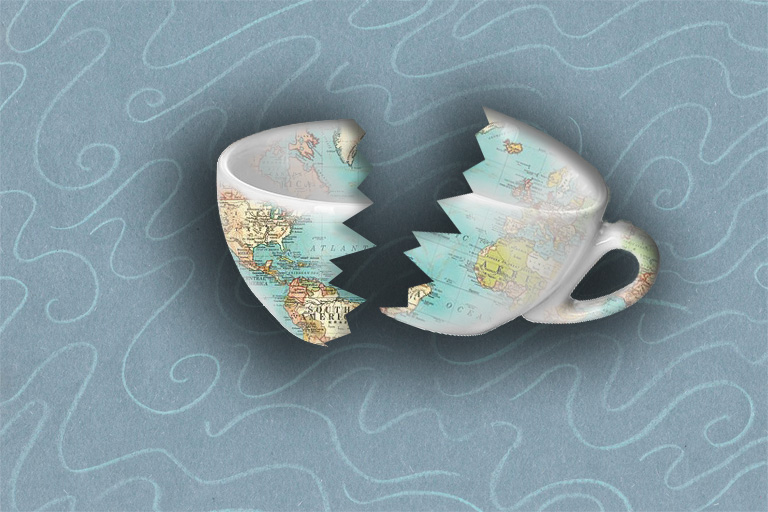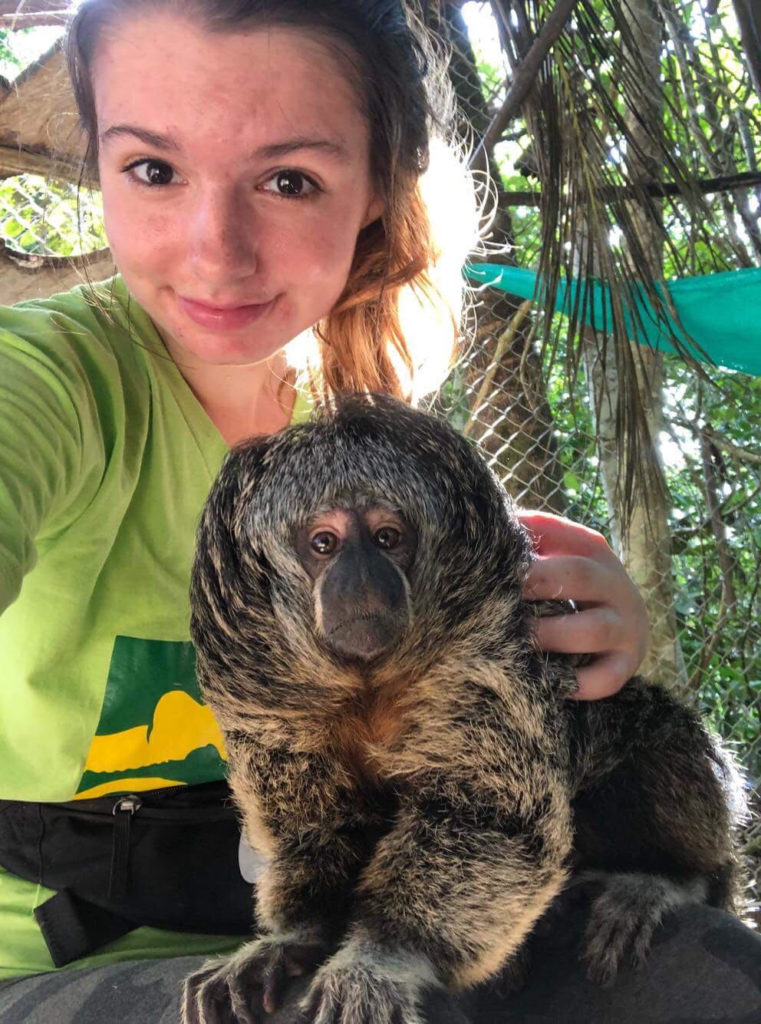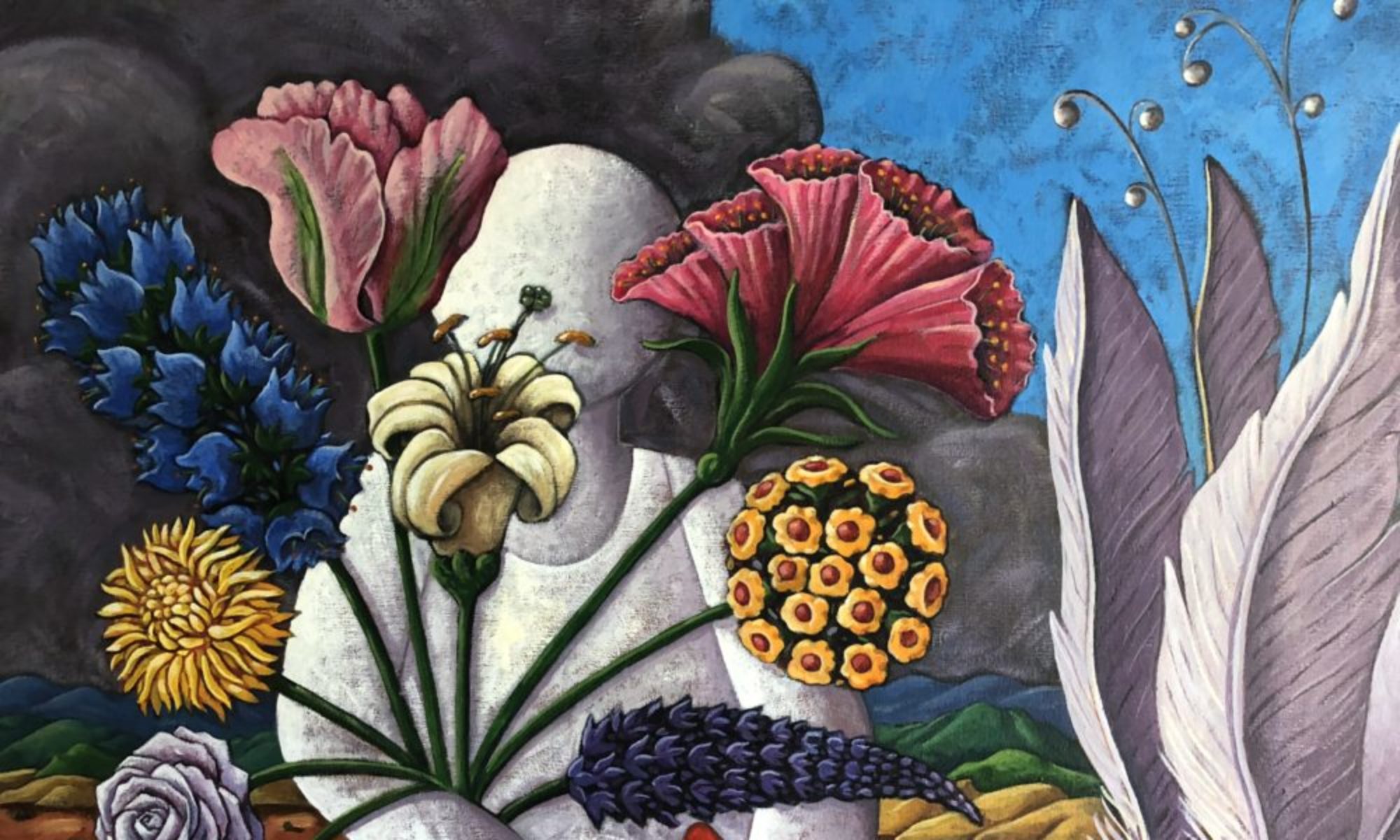A few weeks ago, I visited a place in Canada called Lynn Canyon. A short bus ride from Vancouver, it’s a popular tourist spot with a suspension bridge, hiking trails, waterfalls and swimming holes surrounded by temperate rainforest.
Lynn Canyon is full of signs warning people not to jump into the inviting water pools in the chasms below.
Clearly these signs are written for hot summer tourists with impulse management issues. Yet, surrounded by all that fragrant forest beauty, one sign made me pause for thought.
‘Your fear is smarter than you.’
In a world of short concentration spans, I appreciate we are guided by such simple aphorisms, but I longed to argue with the writer of that sign.
Because sometimes I have found fear is an obstacle.
Sometimes your fear is dumber than you.
And perhaps the most insidious fear of all is fear of the unknown. Fear of the unknown can lead to insularity, superstition and prejudice. It can shut down our brains.
For millennia, fear of the unknown, along with its Siamese twin ignorance, have been exploited by clergies, governments and tyrants to oppress people, isolate entire communities and countries and justify all kinds of heinous crimes.
So how do we counter this very human tendency to retreat from things we don’t understand? How do we fight that fear than can swamp our bodies and brains when we encounter something new, confronting and different?
Reading is a good start. Information is a slayer of ignorance. So, incidentally is fiction. A good story with empathetic characters in challenging situations can capture profound truths about the human condition.
Acts of courage regularly triumph over fear. We just don’t read about these quietly heroic deeds very often because most of us, including yours truly, are addicted to our regular fixes of drama, bad news and scandal.
In the stories below, names and details in have been changed to protect the identities of the protagonists. Except where they don’t.
A MAGICAL TEACUP

It was mid-morning in an office in Tehran, and Aminda – a temporary employee contracted to do some book keeping – had been invited to join the other workers for morning tea. In the office kitchen, everyone took a cup from the selection in the cupboard above the sink. Aminda chose a teacup with an attractive floral design. As she pulled the cup from the cupboard a colleague gave the teacup a dark look and vigorously shook his head. ‘You shouldn’t take that one,’ he advised. ‘Return it to the cupboard.’ When she looked perplexed, he leaned in and whispered between his teeth. ‘That cup belongs to Husayn.’ He gestured through the door to a man sitting at his desk working. ‘He’s a Bahá’i.’
Aminda, who, unbeknownst to her colleague, also happened to be a Bahá’i, smiled graciously. ‘In that case she said, ‘I really want this cup. It’s a very nice one and will do just fine.’
After I heard this, similar stories of idiocy, superstition and hostility towards disciples of this benign faith followed. A young woman told me the story of her Muslim grandmother who separately washed the cups and plates of her daughter’s Bahá’i guests.
In Iranian towns, villages and city streets, people wiped down public phones after they had been used by Bahá’is. Insults were written on doors of Bahá’is and their windows were smashed. Rather than risk physical contact, a teacher poked his Bahá’i students with the eraser end of his pencil.
A café proprietor openly smashed the cups of Bahá’is to placate his Muslim customers. There’s far more – the list is long and astonishing. I have met people fired from their jobs and children expelled from school for being Bahá’i. In Iran, Bahá’is can’t go to university. These are not the worst stories. Bahá’is have been imprisoned and killed for following a faith that believes in unity and peace. And this is still going on today.
Many have fled Iran to escape the persecution. Some have ended up in Australia where I have had the pleasure and privilege of meeting them.
The Bahá’i friends I have are some of the most wise, gracious, peaceful, forgiving and dignified people I have ever met. They understand much of this hostility in their home country comes from ignorance fed by fear. They carry many devastating memories with courage and even sometimes, humour. They miss their families and friends –both Muslims and Bahá’i – but they daren’t go back to Iran while the current government is in power. Yet they bear their oppressors no ill will even though the rumours spread by the government about the Bahá’is are so preposterous they belong in the dark ages.
I will say no more. It makes me too angry. There is no way I would have been able to face all those superstitions with such peace, wisdom and fortitude.
For more on this beautiful faith here’s a link:
TERRIFIED MOTHER VS ENDANGERED WILDLIFE

In May of 2018, a young Australian woman on a university exchange in Canada searched for ways to fill her summer break. She didn’t want to come home to the Southern Hemisphere. She had a whole world she longed to explore. The challenge was: how to do this all on a budget? As a foreign student, she wasn’t allowed to take on paid work and she wanted to travel.
She decided on a trip to South America but was concerned at the prospect of travelling on her own. Despite asking her friends, she couldn’t find a suitable willing or available travel companion.
Then, one day, a post popped up on her Facebook feed. It was a call for volunteers to help at an animal conservation and refuge centre deep in the heart of Peru on the edge of the Amazon rainforest. Accommodation and meals would be provided in exchange for helping with the management and running of the refuge. The travel cost was cheap. She would be met at Iquitos airport by a member of the centre.
When her mother – back in Australia – heard about her planned trip, a maternal meltdown ensued. Fear reared its ugly head. All the potential pitfalls of travelling to what sounded like the middle of nowhere consumed this mother’s brain. So many things could go wrong! Disease, kidnapping, assault, pythons, deadly spiders, man-eating fish, travel disasters – the list was endless. And was this Facebook post a scam?
‘Don’t go!’ said her mother. ‘It’s far too dangerous!’
Steadfastness is a close cousin of courage and sometimes, particularly where a parent-child relationship is concerned – this can be construed as stubbornness.
The young woman wasn’t backing down. This was an exciting opportunity and she was going.
Meanwhile, the mother – trying to master her rising fears – did some comprehensive googling. The organisation seemed legitimate. But still. Peru? South America with all that male machismo, poverty and political unrest? The Australian government’s Smartraveller website confirmed her worst fears. ‘Exercise a high degree of caution,’ it warned, listing the numerous and terrifying catastrophes of previous travellers.
Still the young woman dug in her heels. She was going. She would be fine. She would be sensible.
More maternal conniptions followed and continued, via Facebook messenger – all the way to Peru – where the young woman was met – as promised – by the owner of the rescue centre. From here she was driven into the depths of Peru to have one of the most transformative experiences of her life.
For two weeks her fretting mother woke to videos and photos of her deliriously happy daughter cuddling orphaned baby monkeys, gathering food for manatees and going for jungle walks with a tame ocelot.
And then, came the finale to this story, the other lesson learned, and the reason why having children is also such a life-transforming experience.
After another day of monkey-hugging and ocelot-schmoozing, mother and daughter spoke over the refuge’s surprisingly good internet connection.
‘Mum,’ she said. ‘I ’m so glad that I didn’t follow your advice.’
The mother was me and that brave, determined young woman was my daughter.
I am now an exuberant supporter and follower of RAREC (Rainforest Awareness Rescue Education Centre). I am so touched by their courage and perseverance. The work they do is truly visionary. They understand that to promote animal conservation in an environment plagued by poverty and sometimes ignorance they must educate and offer locals alterative, sustainable ways of making a living. They lobby. They work with the police to try and stop animal poaching – endemic in an area inhabited by so many beautiful, exotic animals. They stand against corporations plundering the rainforest and decimating habitats for profit. It’s a hard job and they constantly need donations and volunteers.
Here’s the link to this amazing organisation. Please help them in whatever way you can. They are doing so much for the animals and our planet.
https://www.facebook.com/RescueParks/
or: https://www.givingway.com/organization/rarec
Thank you, RAREC for not only looking after but also inspiring my daughter. And thank you also for all the wonderful, selfless work you are undertaking to save those beautiful animals.
Hopefully one day, thanks to the kindness, hard work and courage of people who want to protect the planet and help human civilisation progress, instead of followers of beautiful religions and instead of endangered animals, it will be fear and ignorance facing extinction.
Meanwhile no matter how hot it gets, I won’t be jumping into any canyons.
At least not literally.

Saturday, July 20, 2019
To Ingrid Banwell,
Cammeray, Australia.
Subject: your contribution to Time Magazine’s “Conversation”, dated July 22, 2019
Hi.
Unlesss I am mistaken, you appear to be the person who – adaptedly in my views – commented Time Magazine’s column by David (whose last name is unadaptedly in my views) French (RE “WHAT A FATHER CAN DO” [June 24]).
If you accept it, my gratitude for your well-expressed points. For your information, and although I didn’t have the honor of having my own reaction edited, you will find below the copy of what I myself sent to Time Magazine’s editor, taking over and rephrasing some of the last lines of the original column (my own words in bold and crossed characters and italics, unfortunately can’t appear in the proposed form).
—————————————-
As a father, I constantly asked myself the question, “what can I do to show my sons-and daughter- the way?” That’s one reason I -didn’t- join the military -and felt ashamed for the formerly highly commandable Colin Powell and his test tube when the US army deployed to Irak-. I -did not- want to pressure any of my -children- to follow my natural lead and -not- enlist, but rather to demonstrate to them as best as I could what it looked like to be committed to your country and to your family than to yourself.
It’s hard to imagine life without my father’s influence. -A WWII French Resistance movement veteran, especially proud of the FRENCH quality attached to his name-, and quite qualified to determine what armies may -or may not be worth, he’s still waiting for a valid explanation why some even felt the need to erase the adjective “French” to something as trivial as fries-.
The message to men -humans- should be clear and unmistakable: fatherhood is a nondelegable duty, and your son-children- need you everybit as much as you needed your own dad. As a boy child blazes his -her- trail through life, his -her- father should be leading the way.
Jean-Yves -GUILLIN-, FRENCH, is a TIME columnist -long-time subscriber-
—————————————-
Glad to have had the opportunity of sending this message and get in touch.
Yours,
Jean-Yves Guillin
Lyon, France